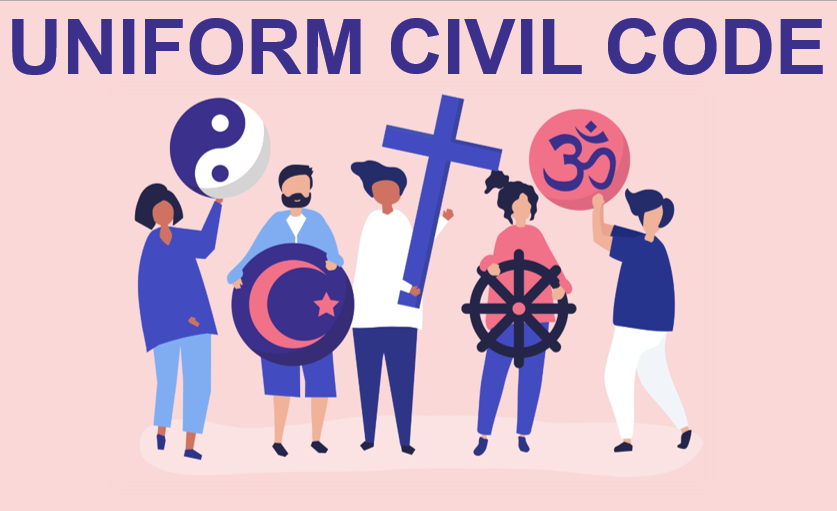Published on 08th July 2025
Authored By: Shubham Patil
ABSTRACT
The acknowledgment of privacy as a fundamental right marks a significant development in Indian constitutional law. This paper explores how the Supreme Court of India has interpreted and shaped the right to privacy over time. It provides a critical analysis of landmark rulings that have defined privacy jurisprudence, emphasizing the judiciary’s role in defending individual autonomy amid dynamic social and technological changes. The evolution of this right notably began with the 2017 verdict in Justice K.S. Puttaswamy (Retd.) v. Union of India, where the Court declared that privacy is an essential element of the right to life and personal liberty under Article 21 of the Constitution. Subsequent rulings, including those involving the Aadhaar scheme and the decriminalization of homosexuality in Section 377, reinforced this principle, reflecting the Court’s responsiveness to modern-day legal and ethical dilemmas.
The paper further investigates the ambiguities and limitations inherent in the judiciary’s interpretation of privacy. It considers how the Court balances personal privacy against the state’s legitimate interests, examines the scope of informational privacy, and contemplates the international dimensions of privacy in a digitally interconnected world. In doing so, it underscores the Supreme Court’s vital function in both defining and upholding privacy rights, while also acknowledging the urgent need for a robust legal framework on data protection in India. The conclusion assesses the potential direction of privacy rights in the future, particularly in light of increasing surveillance and the growing influence of technology on civil liberties.
Ultimately, this article seeks to enhance the broader conversation around privacy in India, and its evolutions and challenges.
Keywords: right to Privacy, Fundamental Right, Supreme Court, challenges, and evolution.
INTRODUCTION
Although the Indian Constitution, when it was enacted in 1950, did not expressly mention the right to privacy, it has gradually been recognized as a fundamental right through evolving judicial interpretation, legislative developments, and shifting societal values. This progression underscores a consistent and growing acknowledgment of privacy’s essential role within the Indian constitutional structure. Article 21, which ensures the right to life and personal liberty, has played a central role in shaping privacy-related jurisprudence and has served as the foundation for its legal recognition.
This analysis traces the constitutional development of privacy in India, examining pivotal court decisions, legislative reforms, and the pressing issues that influence its current and future protection. In today’s digital world, where technology intersects with nearly every part of human life, the importance of privacy has significantly increased. The transition from treating privacy as a component of personal freedom to recognizing it as a core right mirrors global legal shifts and reflects India’s broader dedication to individual dignity and autonomy. This study reviews the historical evolution, major judicial benchmarks, relevant legal reforms, and the complex issues that India must address to effectively protect privacy in an increasingly digital society.
WHAT IS PRIVACY?
Like many complex ideas, privacy lacks a single, universally accepted definition, making it difficult for scholars, activists, lawmakers, and other stakeholders to interpret it uniformly. However, this ambiguity allows for diverse perspectives and interpretations of the concept. To better understand the idea of privacy, it is helpful to explore some commonly referenced definitions.
The Merriam-Webster Dictionary defines privacy as “freedom from unauthorized intrusion,” emphasizing the right to be left alone and to keep personal matters private. Legal scholar Tom Gerety interprets privacy as the ability to control personal identity and its intimate aspects. A 2013 report by the University of California’s Privacy and Information Security Steering Committee conceptualizes privacy as comprising two interrelated elements: autonomy, or the freedom to act without fear of observation, and informational privacy, which relates to the responsible handling and sharing of personal data.
The understanding of privacy has evolved significantly, from being associated solely with secrecy to being recognized as a fundamental human requirement. It now encompasses not only confidentiality but also the right to control personal spaces and knowledge of how those spaces are used. Privacy underpins free expression, ethical research practices, and respect for individual and institutional boundaries. It goes beyond legal compliance and is closely tied to the concept of trust.
In both casual and academic discussions—whether philosophical, political, or legal—the term “privacy” is widely used. Its roots lie deep in sociological and anthropological studies that examine how various societies have historically valued and protected it. Philosophical discourse, such as Aristotle’s distinction between the public sphere of civic life and the private sphere of home and family, also contributes to the foundation of privacy as a concept. Despite this rich history, the understanding of privacy remains fluid, and debates continue over its exact definition, importance, and boundaries.
HISTORICAL JOURNEY OF PRIVACY IN INDIAN CONSTITUIONAL LAW
In its early interpretations, Article 21 of the Indian Constitution was given a limited scope, primarily aimed at protecting individuals from physical harm and ensuring procedural fairness. Judicial decisions from that period, such as Kharak Singh v. State of Uttar Pradesh (1962) and Mohammed Ashfaq v. State of Punjab (1984), narrowly construed “personal liberty” to mean protection against illegal detention and unwarranted state intrusion. Although these rulings did not directly acknowledge the right to privacy, they indirectly underscored the importance of personal autonomy and the need for protection from arbitrary interference by the state, thereby setting the initial stage for recognizing privacy within the broader scope of personal liberty (Bhatia, 2014).
In the Kharak Singh case, the Supreme Court focused on safeguarding individuals from unlawful arrest, indirectly affirming the value of personal freedom. Likewise, in Mohammed Ashfaq, the Court stressed the significance of procedural justice to prevent state violations of individual rights. These foundational rulings laid the groundwork for a gradual expansion in the interpretation of Article 21.
Over time, the judiciary adopted a more inclusive understanding of Article 21, interpreting it to cover a wide range of personal freedoms, including the right to privacy. This progressive shift allowed the Court to respond to evolving social realities and emerging technological threats to personal data and autonomy. Article 21 came to be understood as encompassing various dimensions of privacy—such as informational privacy, bodily autonomy, decisional freedom, and territorial integrity—bringing Indian constitutional law in line with international human rights standards and global legal trends (Pertin & Singh, 2022; Jha, 2023).
THE SCOPE OF PRIVACY RIGHTS
Personal Privacy
Personal privacy refers to safeguarding an individual’s private life, personal decisions, and intimate aspects of their existence. Through a series of forward-looking judgments, the Supreme Court of India has acknowledged the critical importance of this dimension of privacy. It covers areas such as one’s dietary choices, sexual orientation, and the right to solitude within one’s own home. The Court’s interpretation highlights the essential role of personal autonomy, affirming that individuals should have the freedom to make choices about their private lives without external interference.
Informational Privacy
Informational privacy pertains to the safeguarding of an individual’s personal data and sensitive information. In today’s digital age, where data is constantly collected and processed, the protection of such information has become critically important. The Supreme Court of India has recognized the significance of this form of privacy, especially in matters involving surveillance and data security. It has stressed the individual’s right to have control over their personal information and highlighted the urgent need for a comprehensive legal framework to ensure effective data protection.
Bodily Autonomy
Bodily autonomy refers to a person’s right to independently make decisions regarding their own body, health, and medical treatments. The judiciary has affirmed this principle in various rulings concerning healthcare choices, reproductive freedoms, and the protection of bodily integrity. These decisions highlight the importance of allowing individuals to exercise control over their bodies without unjustified intrusion or coercion.
Privacy in the Digital Age
In the digital era, privacy has become one of the most intricate and rapidly evolving dimensions of individual rights. The swift progress of technology and the widespread use of the internet have introduced significant challenges to maintaining personal privacy. The Supreme Court has recognized the necessity of balancing innovation with the protection of individual rights. Its judgments have tackled concerns such as data leaks, state surveillance, and the emerging concept of the right to be forgotten in the online space.
JUDICIAL REASONING AND IMPLICATIONS
The Supreme Court, in its reasoning, emphasized that fundamental rights are interconnected and cannot be separated, asserting that the right to privacy is vital for the meaningful exercise of other constitutional rights. It also recognized privacy as a foundation for human dignity, personal autonomy, and individual identity—key elements of a democratic framework (Pertin & Singh, 2022).
The Puttaswamy verdict carries significant implications. It established that any government action affecting the right to privacy must satisfy the criteria of legality, necessity, and proportionality. This legal standard ensures a thorough examination of privacy intrusions, aiming to maintain a fair balance between governmental objectives and personal freedoms (Chatterjee, 2019).
Post-Puttaswamy Developments: Judicial and Legislative Responses
In the aftermath of the Puttaswamy ruling, the recognition of privacy rights in India has been strengthened through various judicial pronouncements and legislative measures. The Supreme Court has repeatedly affirmed and built upon the doctrines laid down in Puttaswamy, firmly establishing privacy as a fundamental element of individual freedom and human dignity.
Judicial Affirmations
Later rulings by the Supreme Court have expanded on the principles established in the Puttaswamy judgment, exploring various dimensions of privacy across multiple domains. These include matters such as digital rights, data security, and government surveillance, where the courts have underlined the importance of strong legal frameworks to shield individuals from both state overreach and corporate abuse. Additionally, the judiciary has considered concerns related to biometric data use, monitoring in public areas, and the right to be forgotten, reinforcing the need for privacy protections to adapt alongside technological progress (Bisht & Sreenivasulu, 2024).
Legislative Initiatives
From a legislative standpoint, the introduction of the Personal Data Protection Bill reflects a dedicated effort to establish a comprehensive legal structure for safeguarding personal data. Drawing influence from both the Puttaswamy verdict and the European Union’s General Data Protection Regulation (GDPR), the bill tackles key aspects such as how data is gathered, processed, stored, and how individuals can exercise control over their personal information (Vashisht, 2023).The bill clearly defines the duties of data fiduciaries, specifies the rights of individuals, referred to as data principals, and sets up regulatory bodies to ensure adherence to the law. Among its notable features are:
Consent Mechanism: Guaranteeing that individuals knowingly and voluntarily agree before their data is gathered or handled.
Data Minimization: Restricting the collection of data to only what is essential for fulfilling the specified purpose.
Right to Access and Correction: Enabling individuals to view their personal data and request modifications when needed.
Data Breach Notification: Requiring prompt notification to impacted individuals in the event of a data breach, ensuring transparency and enabling timely remedial action.
These statutory provisions are consistent with international standards, offering a robust and cohesive framework aimed at protecting data privacy within the context of India’s rapidly evolving digital economy (Gupta, 2024).
CONTEMPORARY CHALLENGES TO PRIVACY IN INDIA
Although substantial progress has been made, India continues to grapple with various modern challenges that hinder the robust enforcement of privacy protections:
Digital Surveillance and Data Privacy: Government programs such as Aadhaar have enhanced the efficiency of service delivery; however, they have also prompted serious concerns regarding data protection, the adequacy of informed consent, and the possible exploitation of personal data (Beduschi, 2019). Given the extensive nature of data collection involved, individuals are increasingly exposed to risks of data breaches and unauthorized access, thereby underscoring the urgent need for rigorous regulatory oversight (Vashisht, 2023).
The Aadhaar initiative, though pioneering in offering a distinct identification mechanism, has faced criticism over concerns related to privacy violations. Controversies have emerged around incidents of data leaks, inadequate consent during data collection, and the absence of robust protective measures, raising questions about how to strike a fair balance between its practical benefits and individual privacy rights (Kaur, 2024).
Social Media and Digital Sharing: The widespread use of social media platforms has amplified the risks of data breaches, cyber harassment, and identity theft. Insufficient privacy controls and the growing overlap between public and private spaces necessitate the implementation of stronger data protection protocols and heightened public awareness (Vashisht, 2023).
These platforms often gather and profit from users’ personal data, sometimes without clear and explicit consent procedures. As a result, users frequently disclose sensitive information, often unaware of the potential privacy threats they may face.
Government Surveillance Practices: Balancing national security with individual privacy rights remains contentious. Existing laws permitting surveillance often lack sufficient checks and balances, risking privacy infringements without adequate judicial oversight (Hiranandani, 2011).
Laws like the Information Technology Act and the National Security Act provide the government with extensive surveillance powers. However, these laws often lack robust oversight mechanisms, leading to potential abuses and violations of privacy.
Implementation and Enforcement Gaps: Although a strong legal framework exists, the enforcement of privacy protections remains uneven, primarily due to delays in the judicial system, inadequate regulatory infrastructure, and limited public awareness of privacy rights (Imam, 2023).
The success of privacy laws hinges on prompt enforcement and the operational capacity of regulatory authorities. However, issues like bureaucratic inefficiencies, insufficient resources, and a lack of specialized knowledge hinder the effective implementation of privacy safeguards (Subramanian, 2010).
Evolving Legislative Framework: The Personal Data Protection Bill seeks to resolve numerous privacy issues but its effectiveness depends on prompt enactment, the establishment of capable regulatory bodies, and consistent enforcement (Vashisht, 2023).
The bill’s success will largely depend on its flexibility to address new technologies and evolving risks. Regulatory bodies must be equipped with the requisite authority and resources to enforce compliance, ensuring the bill’s objectives are fully realized (Rawal & Patel, 2023).
STRATEGIES FOR ENHANCING PRIVACY PROTECTION
Tackling these issues demands a comprehensive strategy:
Robust Regulatory Frameworks: Robust data protection legislation is essential to govern the collection, processing, and storage of data, ensuring both transparency and accountability. This involves setting explicit guidelines for data fiduciaries and imposing penalties for failure to comply (Bygrave, 2010).
Effective Enforcement Mechanisms: Improving judicial processes, bolstering regulatory capabilities, and promoting a culture of compliance and respect for privacy are essential. It is vital to establish independent data protection authorities with the authority to investigate and enforce privacy legislation effectively (Bisht & Sreenivasulu, 2024).
Public Awareness and Education: Campaigns and initiatives to educate citizens about their privacy rights and how to protect personal information. Empowering individuals with knowledge about data privacy enables them to make informed decisions and advocate for their rights (Kumaraguru & Cranor, 2005).
Adaptive Legislation: Ongoing updates and refinement of privacy legislation are necessary to stay ahead of technological developments and emerging threats. Legislative bodies must collaborate with stakeholders, such as technologists and civil society groups, to ensure that these laws remain pertinent and effective (Vashisht, 2023).
Balancing Privacy with Other Rights: “Balancing privacy with other core constitutional rights requires a nuanced legal approach that upholds various dimensions of individual freedom. This entails a careful assessment of governmental interests concerning personal privacy to maintain a fair and just equilibrium” (Burman & Sreekumar, 2024).
International Collaboration: “Collaborating with international stakeholders to harmonize privacy regulations and exchange effective strategies is vital. Such global engagement is crucial for tackling cross-border privacy challenges and ensuring that India’s data protection regime aligns with internationally recognized standards” (Bygrave, 2004).
CONCLUSION
India’s constitutional journey on the right to privacy reveals an increasingly sophisticated view of the relationship between personal freedoms and governmental duties. What began as a right inferred from early case law evolved into an expressly protected guarantee after the Supreme Court’s landmark ruling in Justice K.S. Puttaswamy v. Union of India (2017). Today, privacy stands as a core component of the nation’s conception of personal liberty.
Yet modern realities—ranging from pervasive digital and biometric surveillance to the disruptive effects of artificial intelligence, social-media ecosystems, and expansive state monitoring—pose complex, constantly shifting threats. Meeting these threats calls for (i) strong, future-proof legislation; (ii) credible, well-resourced enforcement institutions; and (iii) a cultural commitment across government, industry, and the public to treat privacy as a fundamental democratic value.
By drawing on international best practices and encouraging concerted action among the courts, Parliament, regulators, civil society, and the private sector, India can preserve the constitutional guarantees of dignity and autonomy. Sustaining a resilient right to privacy amid rapid technological and social change is indispensable to safeguarding the nation’s democratic character.
REFERENCES
- Pamarthi Satyanarayana, ‘Privacy as a Fundamental Right: The Supreme Court’s Perspective in India’ in Dilipkumar A Ode and others (eds), Innovative Recent Trends in Research (RED’SHINE Publication 2021) accessed 17 May 2025 https://www.researchgate.net/publication/383270604_INNOVATIVE_RECENT_TRENDS_IN_RESEARCH accessed
- Kirtika Sahu and Rakesh Kumar Pandey, ‘The Evolution and Protection of Privacy as a Fundamental Right in India: Constitutional Milestones, Judicial Interpretations, and Contemporary Challenges’ (2025) 22(01) Journal of Advances and Scholarly Researches in Allied Education 115 https://doi.org/10.29070/zr35bw04 accessed 17 May 2025
- Sudarshana Jha, ‘Concept of Privacy in India: A Socio-Legal Critique’ (2023) 15(1) Journal of Management and Public Policy 33–44 https://www.proquest.com/openview/d48a91da01c71430bed289bb626ae3d5/1?cbl=906342&pq-origsite=gscholar accessed 19 May 2025.
- Tokmin Pertin and Ramandeep Singh, ‘Evolution of Right to Privacy in the Constitution of India’ (2022) 5(3) International Journal of Law Management & Humanities 166 https://doij.org/10.10000/IJLMH.113036 accessed 20 May 2025
- Sudarshana Jha, ‘Concept of Privacy in India: A Socio-Legal Critique’ (2023) 15(1) Journal of Management and Public Policy 33–44 https://www.proquest.com/openview/d48a91da01c71430bed289bb626ae3d5/1?cbl=906342&pq-origsite=gscholar accessed 20 May 2025.




